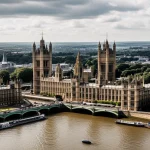Overview of the UK’s Latest Tourism Strategy
The UK tourism strategy emphasizes revitalizing the sector post-pandemic, positioning tourism as a key driver for economic recovery. Government tourism plans focus on enhancing visitor experiences and expanding the range of attractions through official initiatives backed by substantial funding. Central objectives include boosting domestic and international visitor numbers, promoting lesser-known regions, and ensuring sustainable growth.
Key focus areas outlined by officials prioritize infrastructure improvements, innovative marketing, and inclusive access to heritage sites. These efforts align with the determination to position the UK as an appealing, year-round destination. The strategy underscores the importance of tourism to the UK economy, recognizing its role in supporting millions of jobs and generating significant revenue.
Also to see : How is the UK tackling the ongoing healthcare crisis?
Government tourism plans also address regional disparities by encouraging investment across all nations and regions of the UK. Such official initiatives aim to balance visitor distribution, easing pressures on popular hotspots while enhancing economic benefits nationwide. This holistic approach reflects a clear understanding of tourism’s multifaceted impact on economic and community well-being.
New Investments and Funding in UK Tourism
Government funding has become a cornerstone of the UK’s recent tourism investments, targeting infrastructure upgrades and enhancing visitor experiences. These investments UK-wide focus on revitalizing regional attractions and historical sites, ensuring they remain accessible and engaging. Official initiatives emphasize channeling resources into less-visited areas, aiming to disperse visitor numbers and stimulate local economies.
Topic to read : How is the UK’s healthcare system adapting to technological advancements?
A key aspect of government tourism plans involves allocating substantial financial support to both urban and rural sites, recognizing their importance in drawing diverse tourist demographics. This funding helps upgrade facilities, improve signage, and support event programming, which in turn boosts visitor satisfaction and encourages repeat visits.
The impact of tourism investments UK extends beyond physical infrastructure. By empowering local communities through economic support, government initiatives help sustain jobs and foster entrepreneurship linked to tourism. This economic infusion supports broader regional development, underpinning the tourism strategy’s goal of inclusive growth. Ultimately, government funding creates a ripple effect, enhancing the sector’s resilience and capacity to contribute meaningfully to the UK economy.
High-Profile Marketing Campaigns and Partnerships
The UK tourism marketing strategy has intensified with major domestic and international campaigns designed to enhance global appeal. Recent government tourism plans emphasize leveraging digital platforms and innovative media to reach wider audiences efficiently. This approach marks a significant step in official initiatives aimed at boosting international promotion and driving visitor numbers year-round.
Key partnerships have been forged with travel organizations and industry stakeholders, combining resources and expertise. These collaborations enable coordinated marketing efforts that highlight diverse UK attractions, from vibrant cities to heritage sites. Such sector partnerships help amplify campaign impact, ensuring messaging resonates with varied traveler demographics.
The integration of technology plays a critical role. Virtual tours, influencer collaborations, and targeted social media advertising enhance engagement and accessibility. This multifaceted marketing approach aligns with government tourism plans to position the UK competitively on the international stage. By focusing on cutting-edge promotion and strong alliances, official initiatives foster sustained tourism growth and economic benefits across the nation.
Infrastructure and Connectivity Improvements
Government tourism plans highlight significant upgrades to tourism infrastructure UK as essential for enhancing visitor experiences and attracting more tourists. Recent initiatives focus on improving transport connections, ensuring smoother access to both major cities and rural attractions. Efficient travel routes encourage longer stays and easier exploration, directly benefiting the tourism sector.
Transport upgrades include the expansion and modernization of train services, road improvements, and enhanced public transport links to popular sites. These measures reduce travel time, congestion, and environmental impact, aligning with broader government objectives for sustainable tourism development.
Visitor facilities also receive dedicated attention. Accessibility improvements at key attractions—such as better signage, wheelchair-friendly paths, and enhanced visitor centres—ensure inclusivity, making tourism more enjoyable and welcoming for diverse demographics.
Additionally, projects designed to boost connectivity for international tourists, including streamlined airport transfers and clearer information services, reinforce the UK’s appeal as a global destination. These combined efforts reflect official initiatives dedicated to strengthening infrastructure as a foundation for sustained tourism growth.
Commitment to Sustainability in Tourism
The UK tourism strategy increasingly incorporates sustainable tourism UK principles, reflecting a commitment to eco-friendly growth. Government tourism plans prioritize reducing environmental impact through green initiatives, such as encouraging energy-efficient practices at heritage sites and promoting low-carbon travel options. Official initiatives also support businesses adopting responsible resource management.
Addressing climate change, the government promotes responsible travel policies that balance tourism growth with preserving natural landscapes. These policies encourage tourists to engage in environmentally conscious behaviours, such as using public transport and minimizing waste. By embedding sustainability in the sector’s framework, the government aims to ensure lasting benefits for both the environment and local communities.
Government tourism plans endorse partnerships with environmental organisations to foster innovation in sustainable practices. This collaboration supports greener infrastructure and educates visitors on conservation. Through these efforts, the UK tourism strategy strengthens its role as a leader in sustainable travel, aligning official initiatives with global environmental goals and enhancing the country’s international reputation.
Recent Announcements and Policy Updates
Government departments have recently issued key official announcements shaping the trajectory of the UK tourism sector. These updates provide clarity on the evolving UK tourism policy, reflecting adaptive strategies to sustain momentum in the post-pandemic recovery phase. Officials emphasize continued support through refined tourism recovery plans that address emerging challenges while reinforcing previous commitments.
Among the introduced policies are targeted measures to promote regional tourism growth and to encourage innovation within the industry. These initiatives extend existing government tourism plans, ensuring resources are effectively aligned to sector needs. Such developments include streamlined regulatory processes and incentives aimed at boosting both domestic and international visitor engagement.
Industry experts generally view these announcements positively, noting their potential to enhance competitiveness and economic resilience. However, some caution remains regarding implementation timelines and the dynamic global travel environment. Overall, the integration of these new policies into the broader official initiatives framework demonstrates a proactive approach to fostering sustainable growth and maintaining the UK’s position as a leading global tourism destination.
Projected Benefits and Industry Outlook
Government forecasts predict robust tourism sector growth driven by sustained investments and strategic marketing. The UK travel industry outlook anticipates increased visitor numbers, bolstered by enhanced infrastructure and expanded promotion efforts. Economic impact analyses highlight the tourism sector’s potential to generate substantial revenue and support millions of jobs nationwide.
Key benefits extend beyond direct spending, influencing related industries such as hospitality, retail, and transport. This interconnected growth underpins government tourism plans aimed at creating resilient economic ecosystems. However, experts emphasize the importance of continuous monitoring to address challenges including fluctuating global travel trends and environmental concerns.
Proactive official initiatives intend to adapt quickly to shifting market demands, ensuring that the economic impact remains positive and inclusive. By fostering innovation and maintaining strong cross-sector cooperation, the UK aims to solidify its status as a leading global destination. The outlook reflects confidence in tourism’s pivotal role within the broader economic recovery and growth trajectory.










